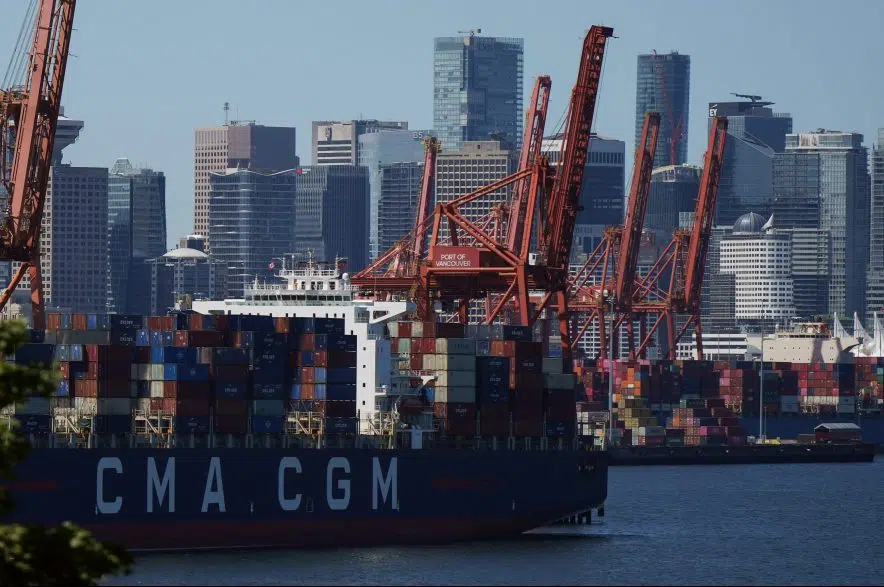Time is continuing to tick by in the B.C. port strike and shipments have not left Saskatchewan in more than three weeks.
Chris Lane, the president and CEO of Economic Development Regina, said this has become a much larger problem for producers, and he wants to see the quickest solution reached.
“You can’t overstate the impacts that this will have on the province. Small businesses could be out hundreds of thousands of dollars, but large portions of the export economy stand to lose much more than that, or at least put it in jeopardy,” said Lane.
Lane said Saskatchewan’s reputation of reliability when delivering products may be affected by the port strike.
“As a commodity-based economy, we rely on reliable shipping and access to that shipping at Canada’s ports. As an agricultural producer, we need that port access for not only the commodities we ship out, but for the commodities we ship in to make the economy go,” he said.
Large agricultural producers are struggling to ship to customers and small businesses are struggling to make sales because they don’t have reliable imports, according to Lane.
“Whether you are a large mover of things like potash for example or you’re a small business looking to have access to product and materials, port access and reliable port access for customers is exceptionally important,” said Lane.
While sellers might get creative with new ways to ship, Lane said all producers will eventually need port access to deliver large volumes of resources.
Saskatoon-based Nutrien Ltd. previously announced it was curtailing production at its Cory potash mine southwest of Saskatoon, and warned the strike may have an impact on the company’s other Saskatchewan mines if it’s not resolved quickly.
About 7,400 port workers at more than 30 ports in B.C. have been asking for increased pay and protection from automation and contracting out since Canada Day.
— With files from 650 CKOM’s Halyna Mihalik







